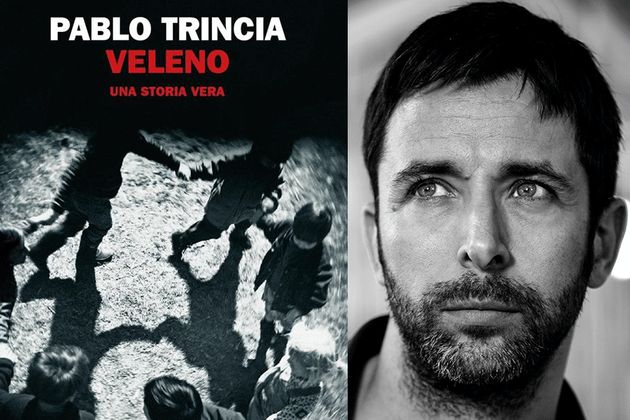This article by Polis Summer School student and former Marine Corps signals intelligence (SIGINT) analyst Derek Matthews.
The intelligence community is bound by a code of silence and not the unspoken kind. Every individual goes through a thorough background check. When I was in boot camp, an FBI agent was flown to my hometown to interview my friends and family to see if I harbored any anti-government sentiments. After I cleared my investigation I was brought into a room with no windows and I had to leave my phone outside.
They played a video that explained that I would be entrusted with secrets that maintained the nation’s security, secrets I would most likely have to carry to my grave. I signed documents that explained I could be sent to military prison if I disclosed classified information to anyone without a clearance, or discussed classified material with anyone outside of a Sensitive Compartmented Information Facility (SCIF), even if they also had a clearance.
The process instilled in us a sense of importance; we would be working with the world’s most prominent spy organization. An organization so secret the US government wouldn’t acknowledge its existence for the first few years, earning it the nickname “No Such Agency”.
As members of the military we are entrusted with the security of the nation. As members of the intelligence community we know that the security we provide comes at the expense of transparency regarding intelligence capabilities and operations as well as the privacy of millions of Americans and the privacy of the civilians that live in the countries we operate in.
Oversight Failure
Congressional oversight committees supposedly manage the tradeoff between security and privacy. They are tasked with ensuring our intelligence platforms remain security focused, and the secrets we keep are kept for the sake of serving the nation’s security needs. But what happens when that oversight mechanism fails? Where does one go to hold our government and military accountable for misconduct?
Well, there are whistleblower laws in America enacted in 1989 to ensure that employees have a procedure to release information regarding misconduct. The problem with that law is that it doesn’t work. Of the 203 whistleblower cases presented to the US Court of Appeals for the Federal Circuit between 1994 and 2010, only 3 cases were allowed to be heard. Supreme Courts in America have been slowly diminishing the power of the whistleblower act to protect whistleblowers that expose government misconduct. Even if you play by the rules, telling truth to power can be a dangerous proposition.
 This was the reality for Chelsea Manning and Edward Snowden. The whistleblowers of our generation who leaked the most comprehensive set of documents about government misconduct in intelligence collection and war misconduct the world has ever seen. Manning leaked over 700,000 documents, mainly on the wars in Iraq and Afghanistan that showed wrongful murder, US complicity in torture, rape, and murder, and showed the government hid the official civilian death toll of the war, which amounted to more than 15,000 civilian deaths which were previously unaccounted for.
This was the reality for Chelsea Manning and Edward Snowden. The whistleblowers of our generation who leaked the most comprehensive set of documents about government misconduct in intelligence collection and war misconduct the world has ever seen. Manning leaked over 700,000 documents, mainly on the wars in Iraq and Afghanistan that showed wrongful murder, US complicity in torture, rape, and murder, and showed the government hid the official civilian death toll of the war, which amounted to more than 15,000 civilian deaths which were previously unaccounted for.
Edward Snowden revealed the extent of the massive government spying programs conducted by the FVEYs (pronounced “Five eyes” which include the USA, United Kingdom, Australia, Canada, and New Zealand). These governments collectively have access to unfathomable amounts of data. We still don’t know the full extent of their collection capabilities, but they have spied on foreign diplomats, the UN, Latin American politicians, everyday Germans, not to mention the original missions in Iraq and Afghanistan.
So despite the threat of imprisonment and possibly the death penalty, these two individuals disregarded their contractual obligation to secrecy and potentially risked endangering human lives to introduce this information to the public discourse. They made tremendous personal sacrifices that can be seen today by the 35-prison sentence to Chelsea Manning, and the threat of prosecution looming over Edward Snowden as he seeks protection in Russia. What did they have to gain?
Nothing. They demonstrated a tremendous amount of faith in the idea that the journalists they leaked the information to would fulfill their responsibility to the public. They also placed faith in all of us. I guess you could say they’re relying on the wisdom of the crowds to make the choices the Intelligence oversight committees and military generals didn’t make.
Courageous Acts?
I’m sure there is probably a significant segment of the population that believes these two individuals should rot in jail for treason and that’s a fair argument. I just think the most relevant of the documents they released were absolutely in the spirit of whistleblowing with no legal way of blowing the whistle. I think the disclosure of the more pertinent documents were courageous acts that should commended, even if I think the sheer amount of data made available to the public was clearly excessive.
I believe the journalists have done their part, other than the failure of the New York Times and Washington Post to originally pick up on the Manning leaks. The new disruptive news media outlet Wikileaks was able to fill that void. Although Julian Assange has paid the cost for fulfilling what could be described as a journalistic responsibility as he withers away in an Ecuadorian embassy here in London where he has been trapped for the last two years (albeit a trap that might be partly of his own making).
Where’s The Debate?
Glenn Greenwald is certainly doing all that he can do to bring the Snowden revelations to the public light despite the detention at Heathrow Airport of David Miranda, the journalist for holding 58,000 leaked documents. The journalists have provided us with the information we need to have an informed debate.
So where is the debate? Americans appear too busy suing the President over the national healthcare system. In the United Kingdom the Parliament was able to pass an “emergency” intelligence bill in a single week without debate. The intelligence bill allows data collection on wait for it… their own citizens. To be sure, there are serious security threats when the newly formed Islamic State in the Middle East is posting videos of British foreign fighters on social media recruiting new members, but that’s why Britain could use a debate. At what point does security win out over privacy? And to what extent do these massive surveillance capabilities increase our security? Time to discuss.
This article by Polis Summer School student and former Marine Corps signals intelligence (SIGINT) analyst Derek Matthews @dsmatth





